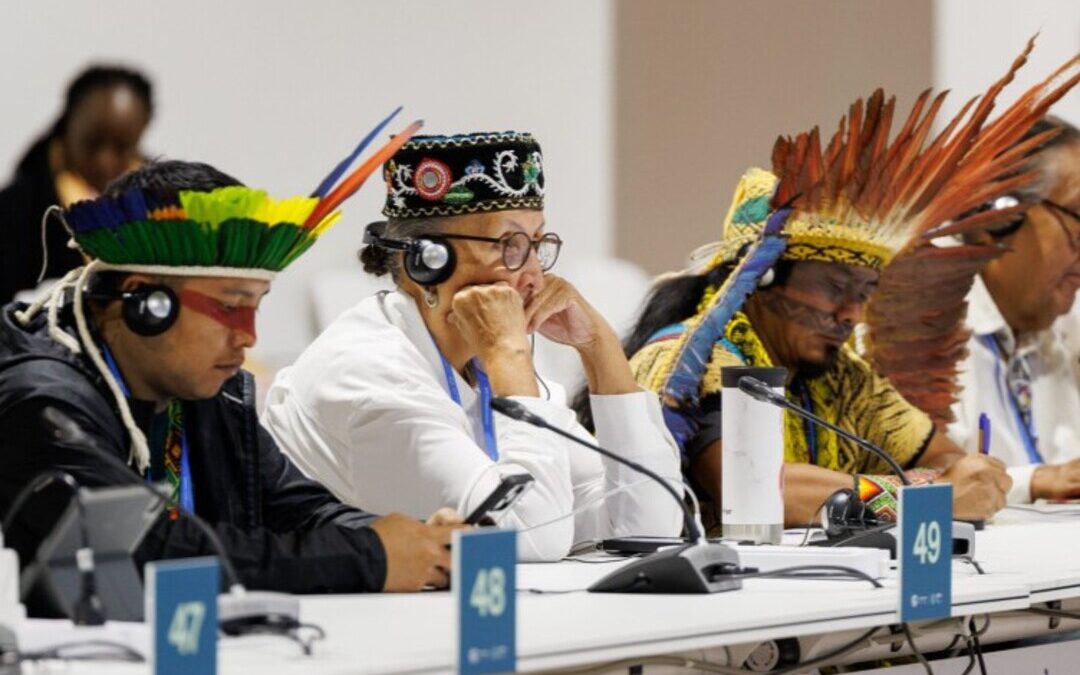COP29 Advances Indigenous Voices in Climate Action with Baku Workplan
COP29 adopts Baku Workplan, boosting Indigenous leadership and collaboration in global climate action.
In a landmark move to strengthen the role of Indigenous Peoples and local communities in addressing the climate crisis, COP29 adopted the Baku Workplan and renewed the mandate of the Facilitative Working Group of the Local Communities and Indigenous Peoples Platform.
The decision underscores the essential contributions of Indigenous leadership and knowledge in crafting effective, inclusive climate policies.
The Baku Workplan, developed through consensus, lays out a roadmap for action in three key areas: promoting knowledge exchange, building capacity for engagement, and integrating diverse knowledge systems into global climate strategies.
This comprehensive plan, to be implemented starting in 2025, emphasizes collaboration across regions and disciplines while addressing persistent barriers to participation in the United Nations Framework Convention on Climate Change process.
The work plan also introduces innovative approaches such as “seventh-generation roundtables” and regional engagement initiatives, aiming to honor long-term perspectives and amplify the voices of knowledge holders.
The framework aspires to ensure that climate actions respect cultural values while achieving global goals by fostering dialogue between Indigenous communities, local stakeholders, and state actors.
Breaking Barriers to Engagement
The FWG’s 2024 report highlighted significant obstacles to the full participation of Indigenous Peoples and local communities in the UNFCCC process.
Among the most pressing challenges are language barriers and gaps in institutional continuity during membership transitions.
To address these, COP29 has invited willing parties to provide simultaneous interpretation in languages beyond the six official United Nations languages, reflecting the linguistic diversity of FWG participants.
Another pivotal measure is the introduction of staggered FWG membership terms, designed to preserve institutional knowledge and enhance strategic alignment between work plan development and activity review timelines.
These steps aim to create a more accessible and effective platform for Indigenous Peoples and local communities to influence climate action.
A Vision for Inclusive Climate Action
Implementing the Baku Workplan will commence with a priority-setting workshop involving incoming FWG members.
The first review of progress is scheduled for 2027, leading to the development of the next LCIPP work plan for 2028-2031.
Guided by principles of gender responsiveness and collaboration, the FWG aims to foster climate solutions that respect and incorporate the wisdom of Indigenous and local communities.
By renewing the FWG’s mandate, COP29 has reinforced its commitment to elevating the voices of traditionally underrepresented groups in global climate governance.
Inger Andersen, Executive Director of the United Nations Environment Programme, described the decision as a “transformational step toward ensuring the values and contributions of Indigenous Peoples is central to our collective fight against climate change.”
A Platform for Progress
Established at COP24 in Katowice, the FWG is a vital mechanism for integrating Indigenous knowledge into global climate efforts.
With representatives evenly split between Parties and Indigenous Peoples organizations, the group bridges the gap between policy and lived experience.
The adoption of the Baku Workplan reflects a growing recognition of the transformative potential of Indigenous and local leadership in shaping sustainable climate solutions.
As the global community navigates the complexities of the climate crisis, the voices of those most connected to the land may prove indispensable in forging a resilient future.
Also Read:
Baku Initiative Highlights Human Development in Climate Resilience at COP29

